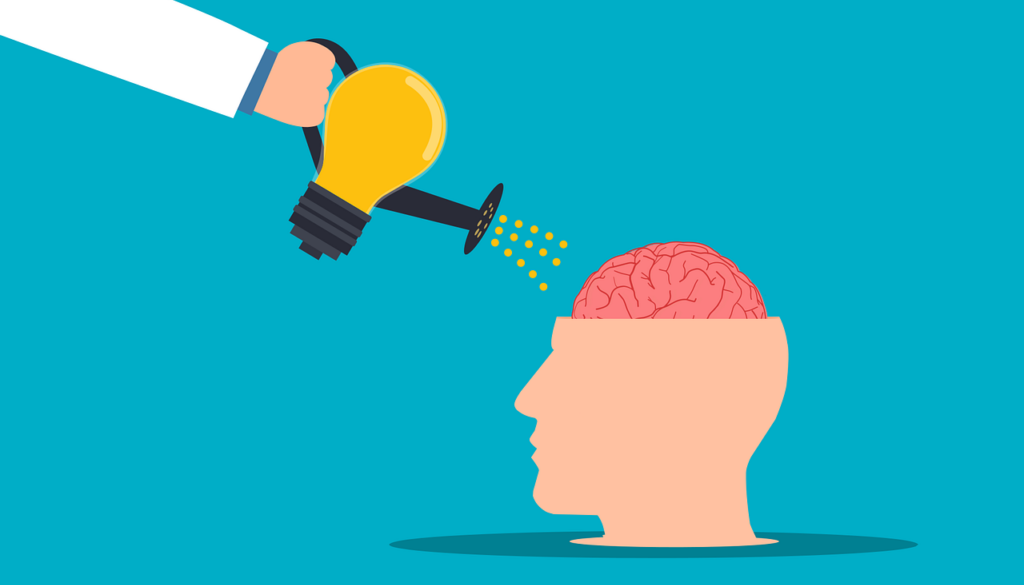Harnessing the Power of Thought: How to Transform Your Mind and Life
Have you ever wondered how many thoughts pass through your mind each day?
Estimates vary widely. Some studies suggest around 6,000 thoughts per day, while others claim numbers as high as 60,000 to 80,000. But let’s be real—trying to quantify our thoughts is like trying to count the grains of sand on a beach. The human mind is incredibly complex, far beyond what numbers can capture. Unlike physics, which relies on mathematics to explain the universe, psychology grapples with nuances that defy simple measurement.
So, rather than getting hung up on numbers, let’s consider this: Our thoughts are countless, and they profoundly shape our lives.
The Power of Thoughts
You might not notice a few droplets of rain, but stand in a downpour, and you’ll feel its force. Similarly, each individual thought might seem insignificant, but collectively, they can change the landscape of your mind—and, by extension, your life.
Just as a river slowly carves its way through rock, our repetitive thoughts etch patterns into our brains over time. The accumulation of these thoughts determines how we perceive the world, how we react to situations, and ultimately, who we become.
The Challenge of Change
“My biggest fear is that my image is not what I am, that I have not actually changed, I have merely altered my skin.” —Journal entry, 2015
I grappled with this fear for a long time. What if, beneath the surface, I was still the same selfish, addicted, people-pleasing person? What if my outward changes were just a façade? The thought of being a fake was excruciating.
Many of us have felt this way—a deep desire to change who we are, coupled with the frustration of seeming unable to do so. We get stuck, holding onto patterns and behaviors for years, even when we know they don’t serve us.
But here’s the thing: Change seems impossible only because we’ve struggled to achieve it in the past.
Humans Are Highly Adaptive
Despite our struggles, humans are perhaps the most adaptive creatures on the planet. Think about it:
- We’ve transformed our environments to suit our needs.
- We’ve embraced technological advancements at lightning speed—smartphones weren’t ubiquitous a couple of decades ago, yet now they’re integral to our daily lives.
- Our bodies constantly adjust to our surroundings: we tan in the sun, our eyes adapt to darkness, our muscles grow with exercise.
Moreover, our minds are incredibly adaptable. Your brain today is not the same as it was yesterday. It’s continually changing, forming new connections, and adapting to new information.
So, if we’re so adaptable, why is personal change often so hard?
The Science Behind Thought and Change
To understand this, let’s delve into neuroscience.
In the early 20th century, scientists like Camillo Golgi and Santiago Ramón y Cajal made groundbreaking discoveries about the nervous system, revealing the existence of neurons—the building blocks of the brain.
Fast forward to 1949, when psychologist Donald O. Hebb introduced a pivotal idea in his book “The Organization of Behavior”. He proposed that:
“Neurons that fire together wire together.”
This means that when we repeatedly think the same thoughts, the neural connections in our brains strengthen. Over time, these connections become robust pathways—the superhighways of our minds.
Every experience, every thought, reinforces these neural pathways. Our thought patterns become our brain patterns, which in turn reinforce our thought patterns—a self-perpetuating cycle.
The Cycle of Repetitive and Negative Thoughts
The problem is, many of these thought patterns are unintentional and, unfortunately, negative.
- Repetition: We tend to think the same thoughts day after day. Our routines, habits, and environments keep us locked in familiar patterns.
- Negativity Bias: Psychologically, humans are wired to focus more on negative experiences. This bias, rooted in survival instincts, means we’re more likely to dwell on problems and past hurts.
These Automatic Negative Thoughts (ANTs) become ingrained, shaping our perceptions and reactions. They not only influence our emotions but also reinforce neural pathways associated with negativity.
Obstacles to Change
Several factors contribute to the difficulty of breaking free from negative thought patterns:
- Environment: Our surroundings reinforce our habits. Familiar places trigger familiar thoughts and behaviors.
- Social Circles: Friends and family may unconsciously expect us to stay the same, resisting our attempts to change because it challenges their sense of continuity.
- Behavior Patterns: Actions reinforce thoughts. Engaging in the same behaviors strengthens the associated neural pathways.
- Biology: Genetics and epigenetics play a role in predispositions. While we can’t change our DNA, our environment and choices can influence gene expression.
- Cultural Norms: Societal expectations can pressure us to conform, making deviation feel risky.
- Media Consumption: The content we consume affects our mindset. Negative or limiting messages can hinder growth.
Strategies for Change
Despite these challenges, change is possible. It requires intentionality and a multifaceted approach.
- Cultivate Awareness
Become mindful of your thoughts. Recognize when you’re engaging in negative or repetitive thinking. Mindfulness practices, like meditation, can enhance self-awareness.
- Practice Positive Affirmations
Consciously replace negative thoughts with positive ones. Affirmations can help rewire your brain by forming new neural connections focused on positivity.
- Embrace Self-Acceptance
Treat yourself with kindness and compassion. Accepting your emotions without judgment reduces internal resistance and fosters a healthier mindset.
- Modify Your Environment
Change aspects of your surroundings to disrupt old patterns. Rearranging your space, exploring new places, or introducing new stimuli can encourage fresh perspectives.
- Nurture Supportive Relationships
Communicate your desire to change with trusted friends or family members. Seek out relationships that encourage growth and align with your goals.
- Set Clear Goals
Define what you want to achieve. Setting specific, achievable goals provides direction and motivation.
- Engage in Healthy Habits
Adopt routines that promote well-being, such as regular exercise, balanced nutrition, and sufficient sleep. These habits positively impact your brain chemistry and overall health.
- Expand Your Perspectives
Challenge cultural norms and societal expectations by exposing yourself to diverse viewpoints. This broadens your understanding and reduces limiting beliefs.
- Curate Your Media Intake
Choose media that inspires and uplifts you. Engaging with positive content reinforces constructive thought patterns.
Moving Forward: Embracing the Journey
Change doesn’t happen overnight. It’s a gradual process that requires patience, perseverance, and self-compassion.
Consider the story of David from historical texts—a shepherd boy who became a revered king. His journey wasn’t defined by the moment he received his crown but by the years of growth, reflection, and resilience that preceded it. He faced hardships, made mistakes, and experienced profound transformations.
It’s better to be a meditative shepherd than an idle king.
The pursuit of inner growth and understanding is more valuable than external accolades or status.
Conclusion
You’re not the same person you were yesterday, and that’s a good thing. Your brain is constantly evolving, and you have the power to guide that evolution.
Remember:
- Be intentional with your thoughts. They shape your reality.
- Embrace change as a natural part of life. Resistance often stems from fear, but growth lies on the other side.
- Equip yourself with strategies. Awareness, positive affirmations, and supportive environments can make a significant difference.
- Be patient and compassionate with yourself. Transformation is a journey filled with ups and downs.
So, take that first step. Start by noticing your thoughts, and choose ones that serve you. Over time, these choices will carve new pathways in your brain, leading to a transformed mind and life.
It’s like releasing the brake on a car—you can finally move forward freely.
Now, go out there and begin crafting the life you desire, one thought at a time.
Psycheverse: “Don’t copy the behavior and customs of this world, but let God transform you into a new person by changing the way you think.” Rom 12:2 (NLT)



